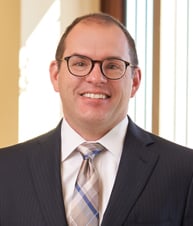A weekly summary of the precedential patent-related opinions issued by the Court of Appeals for the Federal Circuit and the opinions designated precedential or informative by the Patent Trial and Appeal Board.
Belcher Pharmaceuticals, LLC v. Hospira, Inc., No. 2020-1799 (Fed. Cir. (D. Del.) Sept. 1, 2021). Opinion by Reyna, joined by Taranto and Stoll.
Belcher sued Hospira for infringement of a patent covering a particular formulation of 1-epinephrine having a pH between 2.8 and 3.3. The district court ruled that Belcher’s patent is unenforceable for inequitable conduct.
Belcher’s Chief Science Officer, Darren Rubin, was involved in prosecution of the patent as well as regulatory approval from the FDA. During trial, Mr. Rubin admitted that he possessed (but did not disclose to the PTO) a label for an epinephrine product introduced to the market by JHP that had a pH in the range of 2.2 to 5.0. The district court concluded that JHP’s epinephrine product (among other withheld information known to Mr. Rubin) was but-for material to patentability.
The district court also found that Mr. Rubin acted with the requisite intent to deceive the PTO. “Mr. Rubin did not merely withhold this information but also used emphatic language to argue that the claimed pH range of 2.8 to 3.3 was a ‘critical’ innovation that ‘unexpectedly’” achieved a key benefit. Also, that position was an “about-face” from what had been presented to the FDA during the regulatory approval process. The district court concluded that Mr. Rubin’s position on criticality to the PTO was “false” and a “fiction,” and that “the single most reasonable inference is that Mr. Rubin possessed the specific intent to deceive the PTO when withholding the JHP product.”
On appeal, the Federal Circuit recounted these facts and affirmed. Regarding materiality, the Federal Circuit noted that Belcher did not challenge a district court decision that JHP’s epinephrine product rendered the claims invalid as obvious. The Federal Circuit ruled that, “because that is the case, the [JHP] product is necessarily material to patentability.”
Regarding intent to deceive, the Federal Circuit concluded that the district court did not clearly err in finding that the single most reasonable inference was that Mr. Rubin had specific intent to deceive the PTO by withholding the JHP product.
View Opinion
Lubby Holdings LLC, et al. v. Chung, No. 2019-2286 (Fed. Cir. (C.D. Cal.) Sept. 1, 2021). Opinion by Dyk, joined by Wallach. Opinion concurring in part and dissenting in part by Newman.
Lubby sued Henry Chung for infringement of a patent relating to personal vaporizers that resist leaking. A jury found infringement and awarded damages to Lubby. Mr. Chung filed post-trial motions, but the district court denied them. Mr. Chung appealed.
Addressing the verdict of infringement, Mr. Chung argued on appeal that he cannot be liable for infringement based on acts that he took on behalf of his company unless Lubby established that it was appropriate to pierce the corporate veil. But the Federal Circuit ruled that “that is not the standard.” The court explained that “corporate officers can be personally liable for their own acts of infringement, even if those acts were committed in their corporate capacity.” Thus, “the fact that Mr. Chung may have acted on behalf of his corporation does not excuse him from individual liability.”
Addressing damages, Mr. Chung argued that Lubby had not complied with the marking requirement of 35 U.S.C. § 287. The Federal Circuit agreed that Mr. Chung satisfied his “initial burden of production to articulate the products it believes are unmarked ‘patented articles’ subject to § 287,” which “is a low bar” to satisfy. Lubby then bore the burden to prove that the identified products do not practice the patented invention or were marked as required by § 287. Lubby did not satisfy that burden. Thus, Lubby could recover damages only for the period that it provided actual notice of infringement to Mr. Chung, which occurred when the lawsuit was filed. The Federal Circuit remanded for a new trial to determine the number of sales that followed the filing of the complaint and the damages award appropriate for the sale of those infringing units.
Judge Newman dissented in part, disagreeing with the majority’s rejection of the jury’s damages verdict. Judge Newman emphasized that there was evidence of prior work between Lubby and Chung, including “Chung’s admitted knowledge” due to the parties having been “collaborators in connection with this invention.” Judge Newman also emphasized the deference due to the jury verdict and that “it is not the appellate role to act as a factfinder on appeal.”
